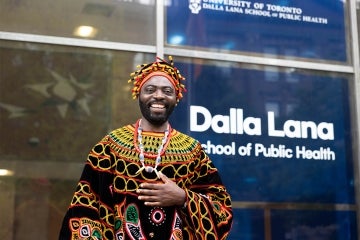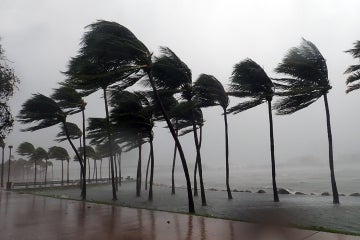Why and when young children lie are just some of the insights into human development found in new studies from U of T's Kang Lee - research that's grabbing headlines around the world.
In January, the University Distinguished Professor with the University of Toronto’s Dr. Eric Jackman Institute of Child Study published a major study on lying, in Developmental Psychology which sparked widespread attention. Another important study, this one focused on altruism in children who have survived disaster, will soon appear in a forthcoming issue of Psychological Science but media outlets such as Time have already shared some of the results.
U of T News spoke with Lee about his findings.
What were the findings from your study about toddlers’ ability to lie?
Children are often believed to be honest and will never lie. For example, there was a long held view that children will never lie and therefore their testimony should be always trusted. Also, many parents believe that if their children do “lie”, they are simply acting out their imagination, and thus do not really tell lies in the true sense of the word. Our study used experimental methods to establish clearly that even two-year-olds would lie. However, it should be noted that if you are looking for the most honest group of kids, two-year-olds are the group because only 25 per cent of them lie. When you go up by one year, 50 per cent of three-year-olds lie. After four years, most children lie (above 90 per cent). Rate reaches 100 per cent by seven to eight years of age.
Should parents be worried their child’s lying could get out of control later in life if they’re already fibbing at such a young age?
No. Lying is a normal part of children’s development. Nearly all children lie at some point. In fact, it tells you that your child has reached a new milestone in their social-cognitive development. This is because we found that those children who lie and lie earlier than others tend to have better socio-cognitive skills than others in two important areas: the ability to exercise self-control (we call executive functioning) and the ability to read minds (we call theory of mind). These two skills are the important ingredients for telling lies. In addition, these two skills are also very important for children to succeed in academic and social settings. Autistic children, for example, tend to have difficulty in reading mind and thus suffer from social and communicative difficulties.
So if your child lies, it does not mean your child will develop into a pathological liar in future. However, it does tell you that it is the time for you to discuss with your child, calmly, what is a lie and what is the truth, why we should be honest and the implications of dishonesty. If you catch your child lying, you should use it as a teachable moment to talk about truth and lying, again calmly and rationally. Not to laugh it off nor be mad at their lying.
How does parents’ behaviour influence their children’s tendency to lie?
Parents often lie about various things to get your children behave or make them feel better (which we call parenting by lying). Also, we often fib to our spouse and friends and relatives ("I love your dress, you do not look fat in the dress at all"). In that way, parents model lying and kids can actually pick it up. Thus, avoiding lying is perhaps a good policy for parents and if they have to lie (for example, getting a terrible Christmas gift), they had better explain to their children why they do so.
Why do young children lie about things that can plainly be disproved—for example, saying they finished all their broccoli when there is still broccoli on their plate?
Such lies often occur at very young ages (two or three years) and you will not see such obvious lies after three years. By seven to eight years, you cannot tell whether your child is lying by their facial expressions or verbal statements. They are very, very good at that point.
You have another forthcoming study about empathy in children following a major trauma. What did that study show and why is it significant?
The other study is to look at the other side of the coin, that is, children’s prosocial behavior or altruism and empathy. We found experiencing a natural disaster makes older children more generous and prosocial and younger children more selfish. Such changes appear to be temporary, suggesting that children’s change in altruism after experiencing natural disaster is an acute response, not a lasting one. Also, we found that empathy plays an important role in children’s acute responses to natural disaster. The more empathic, the more they give when they experience a natural disaster.




